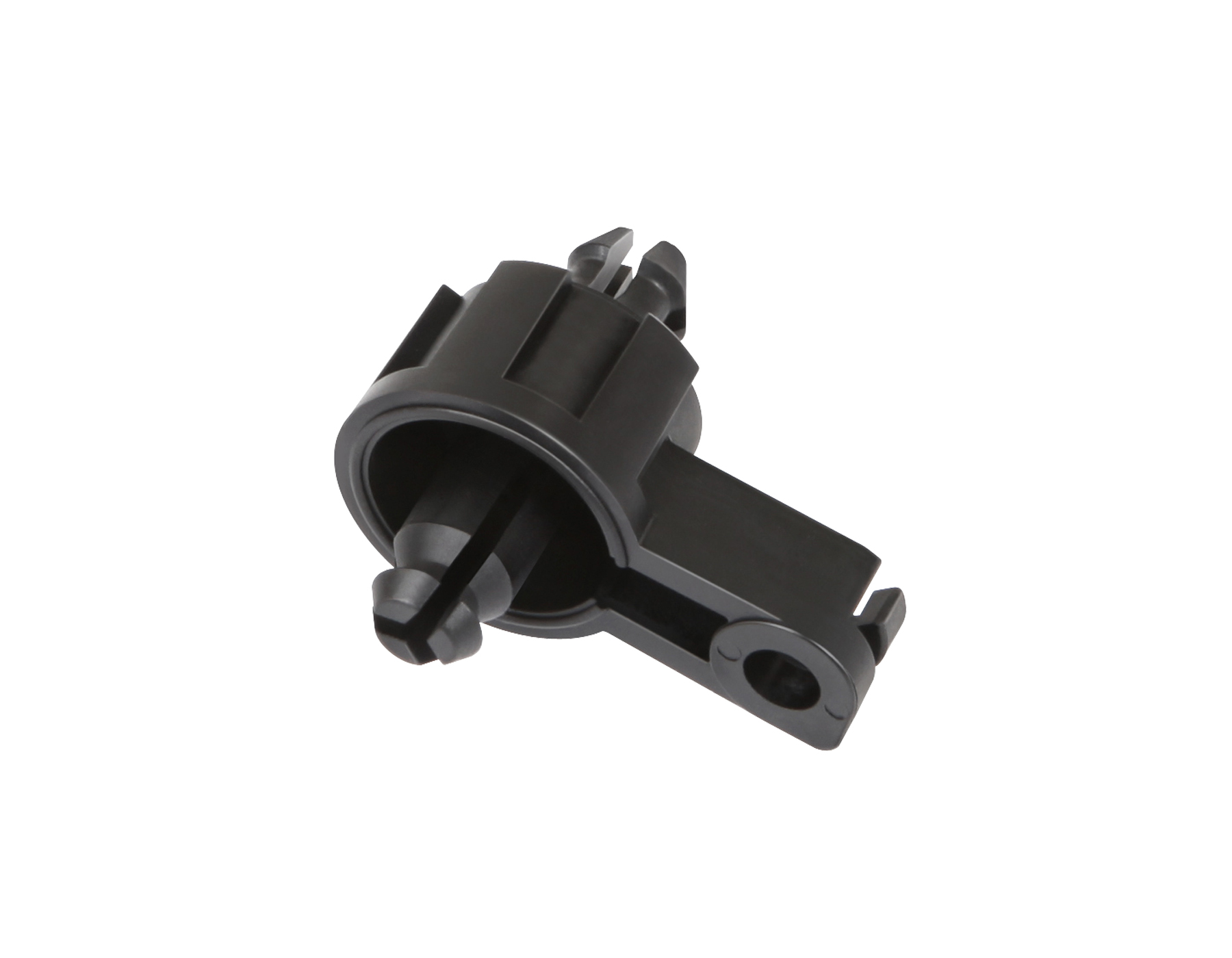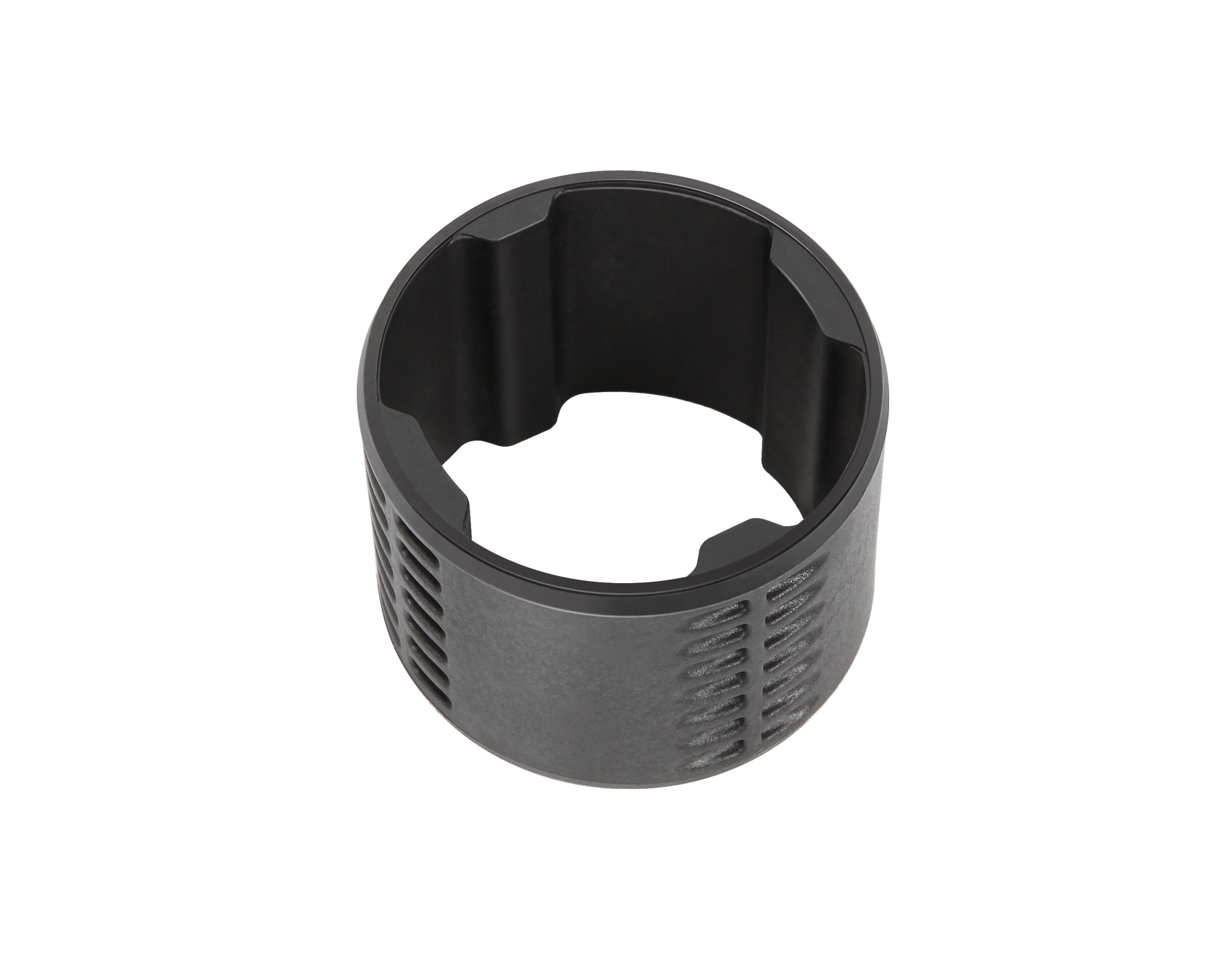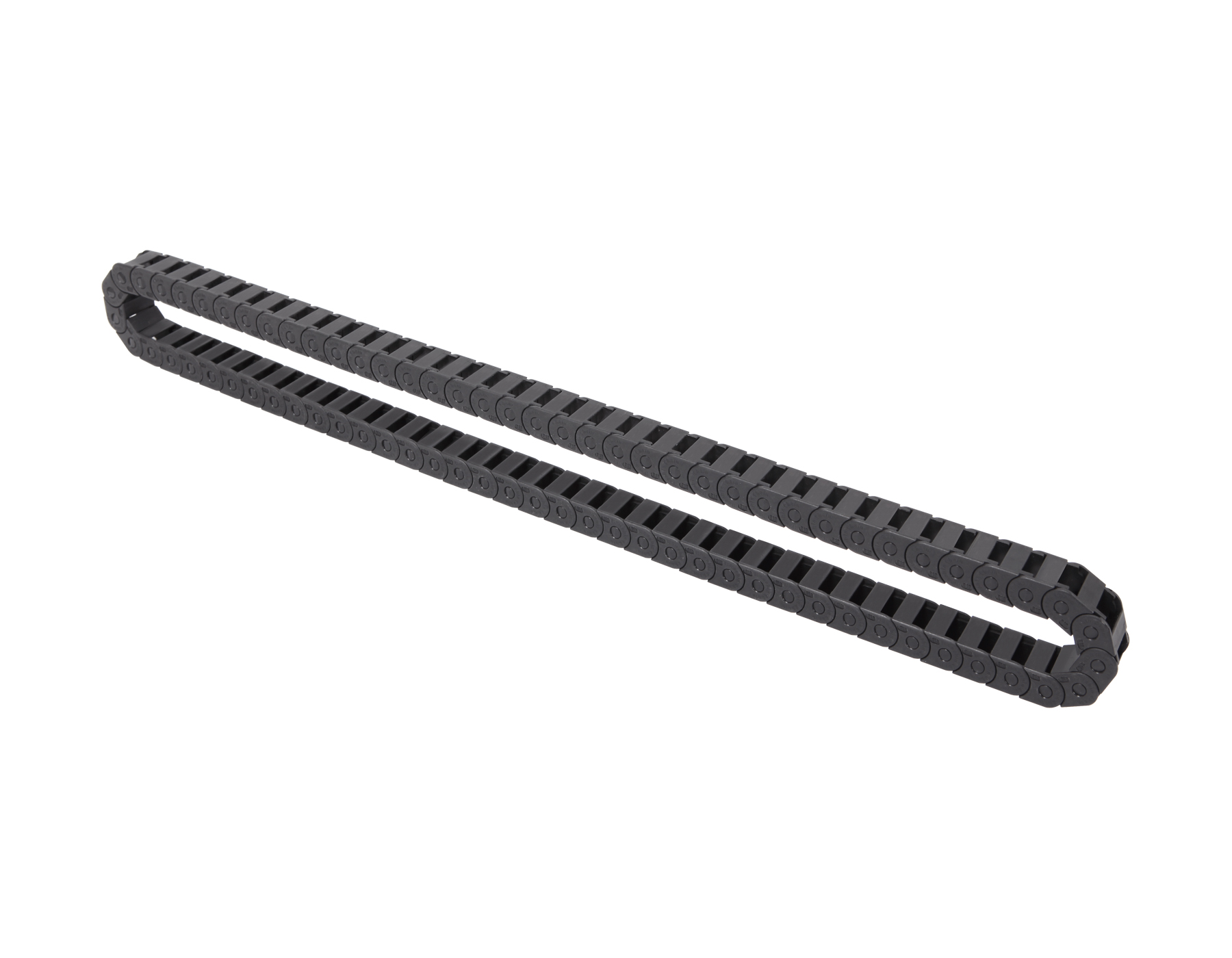DSC122SG6 BK
| Molding method | Injection molding |
|---|---|
| Features | Rigidity, Impact resistance, Moldability |
| Ingredients | PA6 GF30% |
-
Ingredients
Material characteristicsDESLON® DSC122SG6 BK is a Polyamide6 product with 30% Glass Fiber reinforcement and impact resistance modifiers, offering excellent mechanical stiffness and elasticity.
Molding conditionMoisture in resin can cause decomposition during the injection molding process, leading to property degradation and molding defects. To prevent this, it is essential to dry the resin in a dehumidifying dryer at a minimum temperature of 80°C for at least 4 hours prior to molding. This process ensures that the moisture content is reduced to below 0.2%, thereby preventing these issues.
-
Application Part
-
Application Examples
- Technical Data Sheet(ASTM)
- Technical Data Sheet(ISO)
- Recommended molding condition
- MSDS(Material Safety Data Sheets)
| Property | Item | Condition | Method | Unit | Value |
|---|---|---|---|---|---|
| Physical | Water Absorption | 23°C, 50% RH | ASTM D570 | % | |
| Specific Gravity | 23°C | ASTM D792 | - | 1.31 | |
| Mold shrinkage | Flow, 60 X 60 X 2mm | ASTM D955 | % | ||
| Cross-flow, 60 X 60 X 2mm | ASTM D955 | % | |||
| Mechanical | Tensile Strength | 5 mm/min(Reinforced), 50mm/min(Unreinforced), 3.2mm | ASTM D638 | kgf/cm2 | 1300 |
| Elongation | 5 mm/min(Reinforced), 50mm/min(Unreinforced), 3.2mm | ASTM D638 | % | 4 | |
| Flexural Strength | 5.6 mm/min(Reinforced), 16.8mm/min(Unreinforced) 6.4mm | ASTM D790 | kgf/cm2 | 70000 | |
| Flexural Modulus | 5.6 mm/min(Reinforced), 16.8mm/min(Unreinforced) 6.4mm | ASTM D790 | kgf/cm2 | 2100 | |
| Izod Impact Strength | Noched, 6.4mm, 23°C | ASTM D256 | kgf.cm/cm | 20 | |
| Rockwell Hardness | R-Scale | ASTM D785 | - | 115 | |
| Thermal | Melting Point | ASTM D3418 | °C | 219 | |
| HDT(1.8MPa) | 6.4mm, Edgewise, Unannealed | ASTM D648 | °C | 200 | |
| HDT(0.46MPa) | 6.4mm, Edgewise, Unannealed | ASTM D648 | °C | 215 | |
| Flammability | UL 94 | - | HB | ||
| Electrical | Volume resistivity | ASTM D257 | Ohm | ||
| Dielectric Constant(10^6HZ) | ASTM D150 | - | |||
| Dielectric Strength | ASTM D149 | KV/mm | |||
| ARC resistance | ASTM D495 | Sec |
| Property | Item | Condition | Method | Unit | Value |
|---|---|---|---|---|---|
| Physical | Water Absorption | 23°C, 50% RH | ISO 62 | % | |
| Specific Gravity | 23°C | ISO 1183 | - | 1.31 | |
| Mold shrinkage | Flow, 60 X 60 X 2mm | ISO 294-4 | % | ||
| Cross-flow, 60 X 60 X 2mm | ISO 294-4 | % | |||
| Mechanical | Tensile Strength | 5 mm/min, 4mm | ISO 527 | MPa | 135 |
| Elongation | 5 mm/min, 4mm | ISO 527 | % | 4 | |
| Tensile modulus | 1 mm/min, 4mm | ISO 527 | MPa | 8500 | |
| Flexural Strength | 2 mm/min, 4mm | ISO 178 | MPa | 210 | |
| Flexural Modulus | 2 mm/min, 4mm | ISO 178 | MPa | 7000 | |
| Charpy Impact Strength | Noched, 4mm, 23°C | ISO 179 | kJ/m2 | 20 | |
| IZOD Impact Strength | Noched, 4mm, 23°C | ISO 180 | |||
| Rockwell Hardness | R-Scale | ISO 2039-2 | - | ||
| Thermal | Melting Point | ISO 11357-3 | °C | ||
| HDT(1.8MPa) | 4mm, Flatwise Unannealed | ISO 75 | °C | 198 | |
| HDT(0.46MPa) | 4mm, Flatwise Unannealed | ISO 75 | °C | 216 | |
| Flammability | UL 94 | - | |||
| Electrical | Volume resistivity | IEC 60093 | Ohm | ||
| Dielectric Constant(10^6HZ) | - | ||||
| Dielectric Strength | IEC 60243-1 | KV/mm | |||
| ARC resistance | Sec |
| Property | Unit | Range | |
|---|---|---|---|
| Resin Drying Temperature | °C | 80~120 | |
| Resin Drying Time | Hr | 3~5 | |
| Cylinder | Rear | °C | 240~250 |
| Middle | °C | 250~260 | |
| Front | °C | 250~270 | |
| Nozzle Temperature | °C | 255~270 | |
| Resin Temperature | °C | 255~270 | |
| Molding Temperature | °C | 80~100 | |
| Speed | % | 30~60 | |
| Pressure | 1st | % | 30~70 |
| 2nd | % | 30~70 | |
| Holding Pressure | % | 10~30 |
-
1.Chemical Product and Company Identification
1) Product Name : DESLON® DSC101G3 BK01
2) Recommended use of the chemical and restrictions on use
**Recommended use of chemical
- Thermoplastic for injection molding and extrusion molding
**Restrictions on use
- Do not use it for anything other than the recommended purposes
3) Manufacture/Supplier
Company: DESCO CO., LTD.
Address: 24, Gongdan-ro 9-gil, Waegwan-Eup, Chilgok-Gun, Kyeongbuk, Republic of Korea
Tel: +82-54-970-5861 -
2.Hazard Identification Summary
1) Hazard Classification
2) GHS (Globally Harmonized System Classification and labeling of chemicals)
Pictographs: N/A
Hazard statements: N/A
Precautions: N/A
3) Hazard classification does not include other hazard (NFPA)
Health =1, Fire = 1, Reactivity = 0 -
3.Composition, Ingredient Information
Chemical Nature CAS No. Composition(%)
---------------------------------------------------------------------------
Polyamide 6 25038-54-4 -
Glass Filler 65997-17-3 15 ~ 50
Impact Modifier - -
Additives - ≤ 2
* It’s not dangerous generally and a small quantity of additions and impurities aren’t shown, but we can offer it for medical treatment. -
4.First Aid Measures
1) Eye contact
- Flush the eyes with plenty of water or physiological saline solution until the chemical is completely removed.
2) Skin contact
- Immediately remove contaminated clothing, accessories, and shoes.
- Wash the affected area with plenty of water using soap or a neutral detergent until the chemical is completely
removed.
3) Inhalation
- Evacuate from the contaminated area immediately and move to a place with fresh air.
4) Ingestion
- No need of first-aid measures. Just vomit get medical attention if person became unconscious.
5) Note to physician and first-aid
- No special antidote. Supportive therapy should be used according to symptoms. -
5.Explosion and Fire Fighting Measures
1) Proper (and improper) fire extinguisher
- Suitable: CO2, water, powder, general-purpose foam
- Not suitable: N/A
2) Specific hazards arising from the chemical
- Irritant smoke, including carbon monoxide (CO), nitrogen oxides (NOx), halogen compounds and other toxic fumes,
may be produced.
3) Protective equipment and precautions for firefighting
- In case of Fire, spray the fire extinguisher towards the base of the flames after securing a safe distance
- If you do not have fire extinguishers, sand for fire and fire hydrant may be used.
- Ensure that people in the area evacuate to a safe location.
- During a fire, harmful gas can be caused by combustion and decomposition of substances. -
6.Accidental Release Procedures
1) Precautions and equipments for personal protection
- Do not inhale dust and vapor during operation.
- Immediate disposal to prevent risk of slipping.
2) Precaution for environmental protection
- N/A
3) Purification or removal methods
- Move to an approved location according to industrial waste disposal regulations. -
7.Handling and Storage
1) Safe handling
- Store and handle in accordance with current laws and regulations.
2) Safe storage
- Store in a dry place and away from incompatible materials. -
8.Exposed Controls and Personal Protective Equipment
1) Standard of chemical exposure, standard of biological exposure and etc.
Internal regulations: N/A
ACGIH regulations: N/A
Biological exposure standard: N/A
2) Appropriate engineering controls
- An exhaust system is needed to remove dust and gas generated during work.
If necessary, use a certified mask for dust and organic solvents.
3) Personal protective equipments
Respiratory Protection
- The operator should wear a mask for anti-dust
Eye protection
- Wear safety goggles and install an eye wash and emergency wash facilities.
Hand protection
- Workers handling injections should wear gloves, arm guards, or heat-resistant protective gear.
Body protection
- Wash thoroughly after handling. -
9.Physical and Chemical Properties
1) Appearance: Specified color and granulate form
2) Smell: Nearly odorless
3) Threshold value: N/A
4) PH: N/A
5) Melting point/freezing point: 219℃
6) Boiling point/Boiling range: N/A
7) Flashing point: N/A
8) Evaporating rate: N/A
9) Flammability (solid, gas): N/A
10) Upper/lower bond of flammability or explosive: N/A
11) Vapor Pressure: N/A
12) Solubility: Insolubility in water
13) Vapor pressure: N/A
14) Specific gravity: 1.31
15) n-Octane/water partition coefficient: N/A
16) Spontaneous ignition temperature: N/A
17) Decomposition temperature: N/A
18) Viscosity: N/A
19) Molecular weight: N/A -
10.Stability and Reactivity
1) Chemical stability and the possibility of adverse reactions: stable under normal temperature and pressure.
2) Conditions to avoid
- Heat, flames, sparks and other sources of ignition
3) Substances to avoid
- Acid, A base, An oxidizing agent
4) Harmful substances at decomposition
- Toxic carbon compounds can be released -
11.Toxicological Information
1) Information for exposed route with high possibility: N/A
2) Information for health hazard
Acute toxicity: N/A
Skin corrosiveness or irritation: N/A
Serious eye damage or irritation: N/A
Respiratory sensitization: N/A
Skin Sensitization: N/A
Carcinogenic: N/A
Mutagenicity: N/A
Particular target of toxicity (Single exposure): N/A
Particular target of toxicity (Repeated exposure): N/A
Inhalation Hazards: N/A -
12.Ecological Information
1) Ecotoxicity: N/A
2) Persistence and degradability: N/A
3) Bioaccumulative potential: N/A
4) Mobility in soil: N/A
5) Other adverse effects: N/A -
13.Disposal Precautions
1) Methods of disposal: Handle by precautions specified in the Wastes Control Act
2) Disposal Considerations: Handle by precautions specified in the Wastes Control Act -
14.Transport Information
1) UN number: N/A
2) UN Proper name of shipping: N/A
3) Hazard class of Transit: N/A
4) Container grade: N/A
5) Marine pollutants: N/A
6) Special Safety measures the user need or need to know about transportation or means of transportation
- Emergency measures for fire: N/A
- Emergency measures for Outflow: N/A -
15.Regulatory Information
1) Restriction by industrial safety and health Act: N/A
2) Restriction by Chemicals Control Act: N/A
3) Restriction by Hazardous Materials Safety Control Act: N/A
4) Restriction by Wastes Control Act: N/A
5) Restriction by domestic and international law
Domestic restriction
- N/A
Foreign restriction
- American Management Information (OSHA regulation): N/A
- American Management Information (CERCLA regulation): N/A
- American Management Information (EPCRA 302 regulation): N/A
- American Management Information (EPCRA 304 regulation): N/A
- American Management Information (EPCRA 313 regulation): N/A
- American Management Information (Rotterdam Convention materials): N/A
- American Management Information (Stockholm Convention materials): N/A
- American Management Information (Montreal protocol materials): N/A
- EU classification information (Decided fractionation result): N/A
- EU classification information (Dangerous substance): N/A
- EU classification information (Safety notice): N/A -
16.Other Information
1) Source of data
This MSDS was edited from DESCO Co., Ltd. based on the data of Korea
Industrial Safety Corporation according to Industrial Safety and Health
Act of Article 41 and announced by Ministry of Labor Notice No. 96-12.
2) Creation date: 1st Jan. 2015
3) The number and final date of revision: 3 times / 1st November. 2023
4) Others
This documentation was made out based on our piled up experience and
knowledge of our R&D center. It is suggested that this information
contained in this document can be used for General indication. Therefore,
you should not construe it as product specifications, and you should do
appropriate test before you considering your conditions for newly
applications.
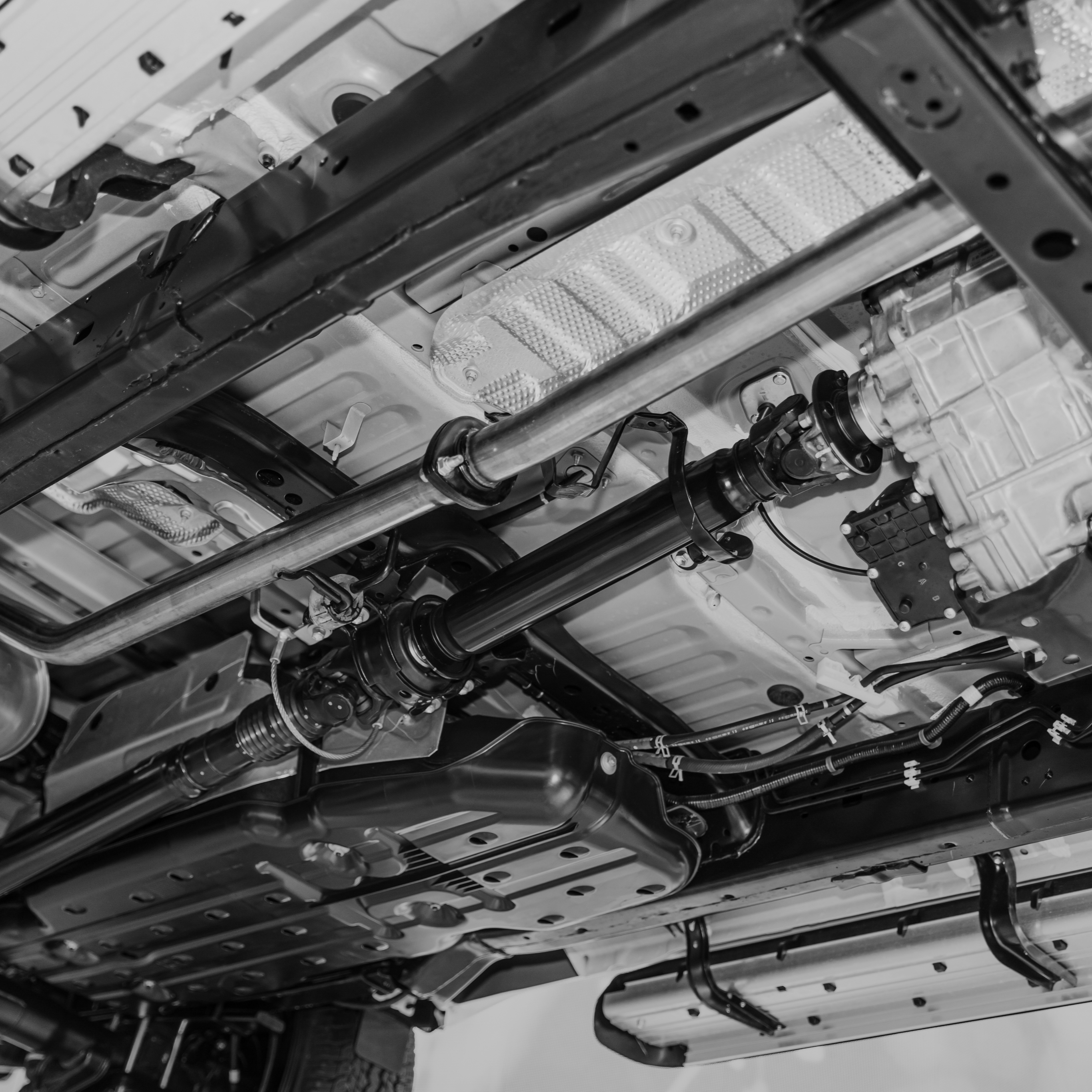 Chassis
Chassis
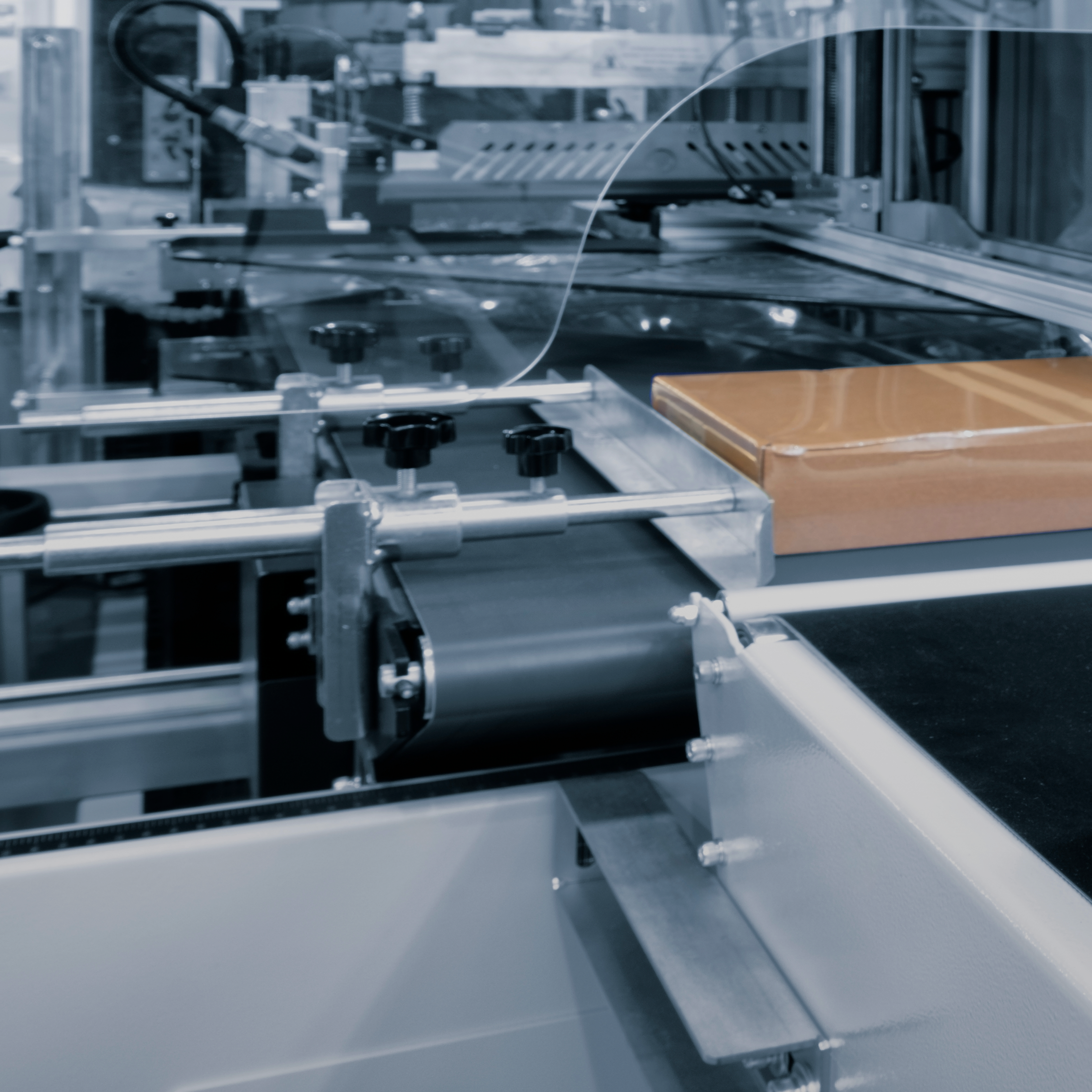 Industrial Products
Industrial Products
